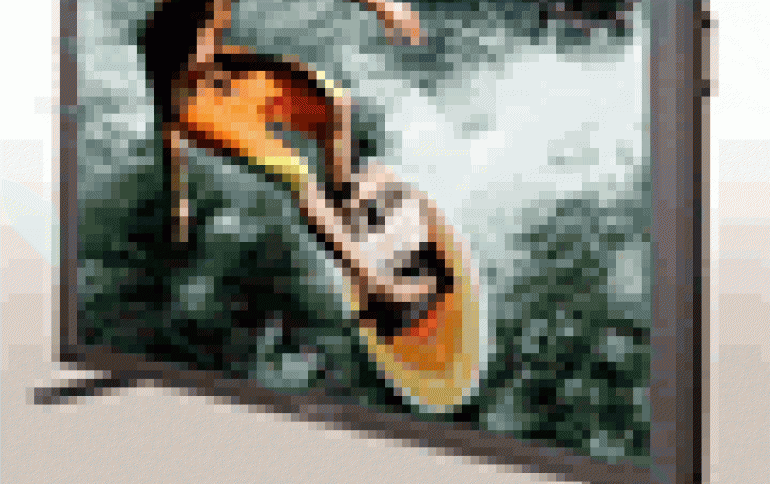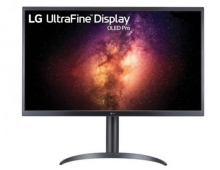
Sharp To Use LG's 3D Technology
Sharp will reportedly sign an aggreement with Korea' s largest Korean chemical company LG Chem Ltd., with Sharp to use LG's film-based 3D technology.
According to a Korean Times' report, Sharp will use LG Chem's FPR 3D technology in its large 3D TVs. The report adds LG Chem offered the technology for a beneficial price, in an effort to expand its customer base for 3D films.
LG's cheaper film-based 3D technology has also attracted traditional supporters of Samsung's competitive 3D technology, which uses battery-powered 3D glasses - Panasonic and Sony. Both these companies chose FPR 3D technology for specific TV models, in order to cut costs of 3D screens.
Sharp and LG Chem have not commneted on the report yet.
In return for using LG's 3D films for Sharp's 3D TVs, Sharp will export its large-sized flat-screens to LG Electronics, according to a seperate deal between the companies. LG Electronics reportedly plans to release a 60-inch 3D TV using Sharp's flat screens.
Sharp and LG Chem have not commented on the report yet.
In related news, Sharp has announced its latest "Aquos Quattron G" series of high-end TVs in Japan with six new models including a 80-inch TV model.
The Japanese electronics manufacturer said the new addition to its Aquos line will cost $12,000. It will go on sale in June as part of a new lineup of six models, the smallest of which is 40 inches in size.
Sharp's new TVs have an upgraded user interface that includes new Internet-enabled content, including a feature that ranks shows by popularity on its sets. The company is also developing a new remote control app for Android phones, which shows Twitter entries related to shows in real time and allows users to add their own messages.

These new TVs also come with UV2A Panel, LED Backlight, a 7,000,000:1 contrast ratio, 240Hz Panel and Sharp latest Audio Engine.
The G series is equipped with an image processing technology that corrects the outline, brightness and color of each sub-pixel by analyzing a scene of a video.
Sharp also employed a newly-developed dual-core image processor, to improve the speed and accuracy of the process that analyzes the brightness and frequency of each video frame and select the appropriate correction mode.
Sharp also announced that it will soon offer 4K TV in Japan before the end of this year.
LG's cheaper film-based 3D technology has also attracted traditional supporters of Samsung's competitive 3D technology, which uses battery-powered 3D glasses - Panasonic and Sony. Both these companies chose FPR 3D technology for specific TV models, in order to cut costs of 3D screens.
Sharp and LG Chem have not commneted on the report yet.
In return for using LG's 3D films for Sharp's 3D TVs, Sharp will export its large-sized flat-screens to LG Electronics, according to a seperate deal between the companies. LG Electronics reportedly plans to release a 60-inch 3D TV using Sharp's flat screens.
Sharp and LG Chem have not commented on the report yet.
In related news, Sharp has announced its latest "Aquos Quattron G" series of high-end TVs in Japan with six new models including a 80-inch TV model.
The Japanese electronics manufacturer said the new addition to its Aquos line will cost $12,000. It will go on sale in June as part of a new lineup of six models, the smallest of which is 40 inches in size.
Sharp's new TVs have an upgraded user interface that includes new Internet-enabled content, including a feature that ranks shows by popularity on its sets. The company is also developing a new remote control app for Android phones, which shows Twitter entries related to shows in real time and allows users to add their own messages.

These new TVs also come with UV2A Panel, LED Backlight, a 7,000,000:1 contrast ratio, 240Hz Panel and Sharp latest Audio Engine.
The G series is equipped with an image processing technology that corrects the outline, brightness and color of each sub-pixel by analyzing a scene of a video.
Sharp also employed a newly-developed dual-core image processor, to improve the speed and accuracy of the process that analyzes the brightness and frequency of each video frame and select the appropriate correction mode.
Sharp also announced that it will soon offer 4K TV in Japan before the end of this year.





















